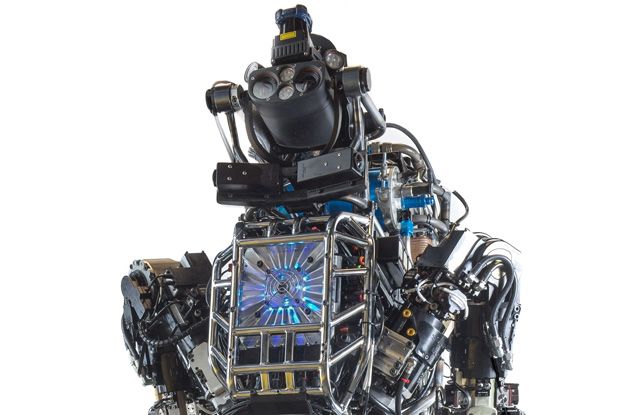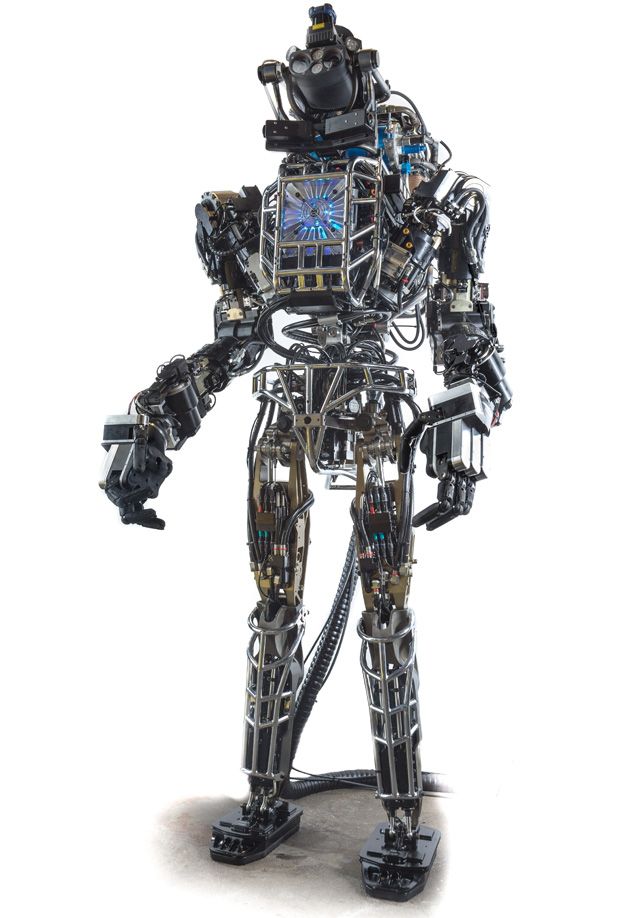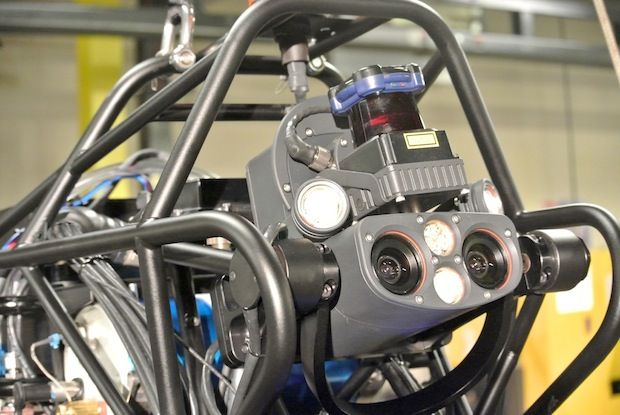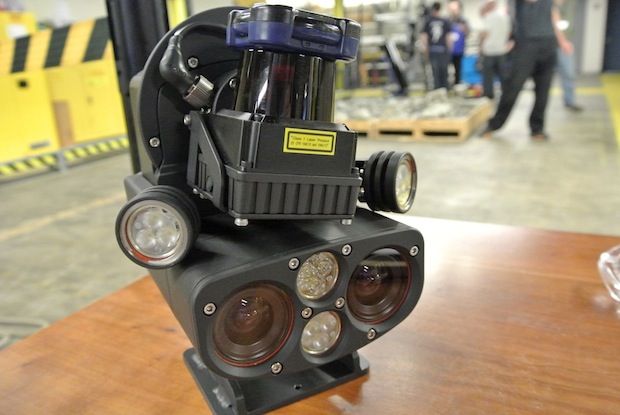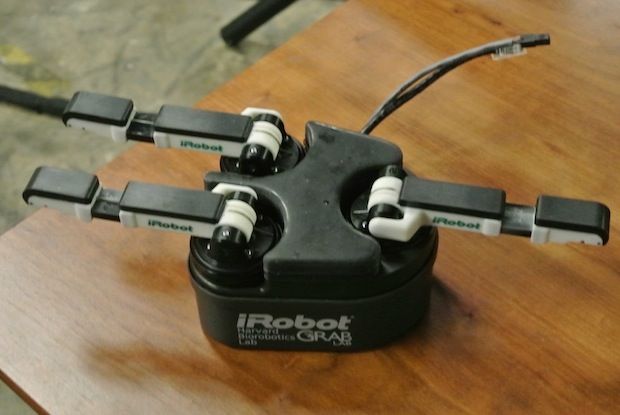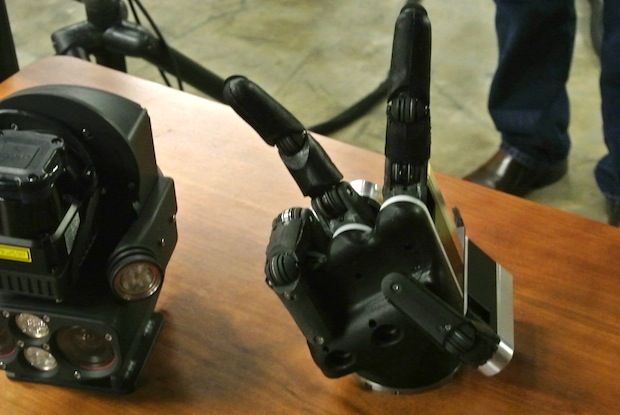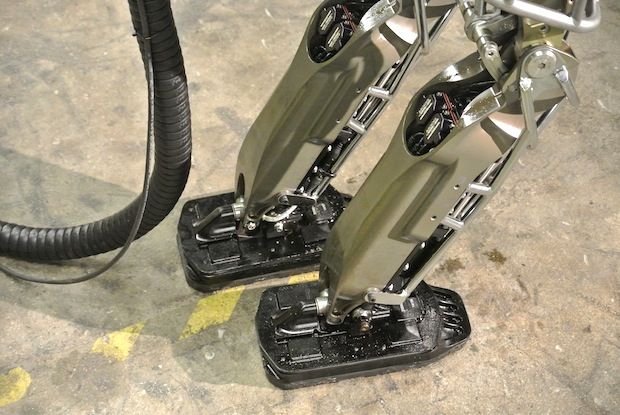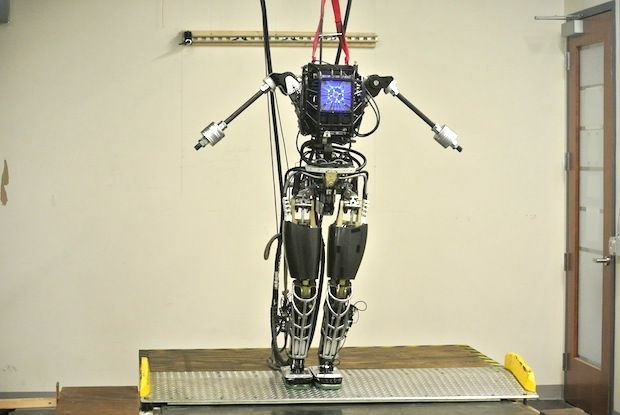DARPA Unveils Atlas DRC Robot
UPDATED 6:32 p.m. More details and photos added.
World meet Atlas. Atlas meet world. With a dash of theatrics, this massive humanoid robot was unveiled today by DARPA at the headquarters of Boston Dynamics, just outside Boston. Atlas was built by Boston Dynamics for the DARPA Robotics Challenge (DRC), whose goal is to advance disaster response robotics. The hope is that Atlas is the first step towards the day when robots, not humans, will be sent to help mitigate major catastrophes, such as the Fukushima nuclear accident.
Boston Dynamics president Robert Playter had Atlas run through a few basic tests for the audience of press and teams participating in the DRC, including a walking demo on a treadmill. As DARPA program manager Gill Pratt explained, in its current form Atlas is "roughly at the competence level of a 1-year-old child." In fact, the demonstrations today were a bit underwhelming (c'mon guys, no push-ups?!) given the complex disaster-response related tasks DARPA has announced for the challenge.
More sophisticated behavior will have to wait until these teams get their Atlases back to their home laboratories, where they will spend many long hours programming the robots to complete the tasks ahead of the competition trials (Pratt estimates that this work will bring Atlas up to about the level of a human 2-year old.) These trials will be held in December at a speedway in Florida, and will be open to the public. The time and location were chosen to minimize the chances of rain, as the Atlas is not yet waterproof.
Atlas itself incorporates hardware from different companies. Boston Dynamics built most of the robot: the torso, arms, legs, and feet. The head is built by Carnegie Robotics, and features a sophisticated range of sensors designed to give the robot 3D awareness of its surroundings, including a laser range finder. Two different pairs of hands will be supplied to the teams, one built by iRobot and the other by Sandia National Labs. Teams will be free to mix and match hands, so a competing Atlas could have a left hand from iRobot, and a right hand from Sandia.
The teams at the unveiling had already met Atlas privately: they were at Boston Dynamics learning how to work with the robot, including the safety issues involved with working with a 150-kilogram robot that can move very fast. Each team will go home with an Atlas, and Boston Dynamics has worked to make the robots as identical as possible. A backup Atlas will be brought to Florida in case of mechanical problems.
Below, photos, specs, and a video of the robot. Check back on Monday, when we'll have more footage of Atlas and interviews with DRC participants.
Specs:
- Six feet, two inches tall (1.88m)
- 330 pounds (150kg)
- On-board real-time control computer
- On-board hydraulic pump and thermal management
- Tethered for networking and 480-V three-phase power at 15 kW
- Two arms, two legs, a torso and a head
- 28 hydraulically actuated joints
- Carnegie Robotics sensor head with LIDAR and stereo sensors
- Two sets of hands, one provided by iRobot and one by Sandia National Labs
The video below, released by DARPA today, has a bunch of old footage, but some new stuff too, although it doesn't appear to show the same version of Atlas that we're seeing in the photo doing anything besides standing there and waving its arms:
Here are photos we took today of the Atlas unveil at Boston Dynamics:
Full body
Chest (no, this is not a flux capacitor, it's just decorative)
Tail, er, tether (for networking and electric power)
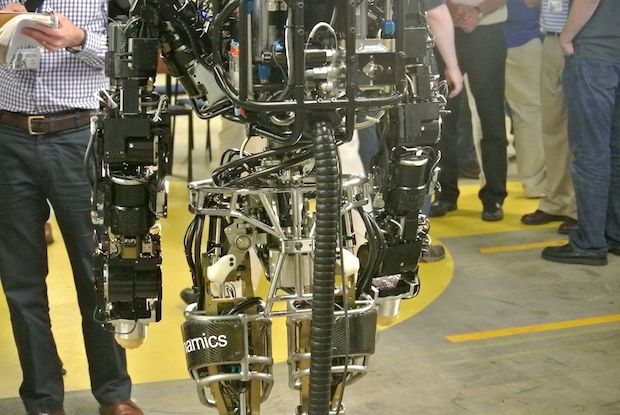
Crotch shot
Biceps
[ DARPA ]
Images: DARPA/Boston Dynamics (top two photos); Stephen Cass/IEEE Spectrum (other photos)
